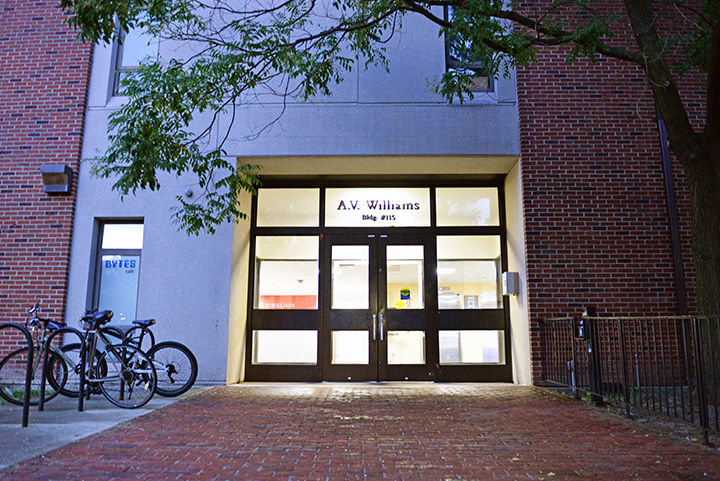
Based in the A.V. Williams building, members of the computer science department are conducting research on crypto currency after the University recieved a grant of almost $2 million from the National Science Foundation.
This university will share a $1,935,783 grant to pursue research on cryptocurrency, digital and encrypted systems of money, including bitcoin.
The National Science Foundation awarded the grant to this university, along with Cornell University and the University of California, Berkeley in July. Researchers and faculty at these institutions will share the total sum and collaborate as part of the Initiative for Cryptocurrency and Contracts, said Andrew Dubrow, a foundation spokesman.
This program promotes further research on security and development in the field, which continues to grow, despite lingering questions about widespread implementation.
“One thing that’s nice about [the grant] is that it brings together people with different expertise to work together on this problem,” said Jonathan Katz, co-principal investigator for the project and a computer science professor at this university.
Cryptocurrency refers to a decentralized form of digital currency that operates independently of any government or bank authority. The most widely used cryptocurrency is bitcoin, which has grown in popularity around the world since its anonymous creation in 2009.
“We already have currencies, and we already have digital currencies, too, so what’s different about cryptocurrencies is that they’re decentralized, and that means that there is no particular administrator or system of trust that you have to rely on,” said Andrew Miller, a cryptocurrency doctoral candidate. “Anyone can join bitcoin.”
This university began offering courses in cryptocurrency last fall with CMSC 414: Computer and Network Security, which Elaine Shi, a computer science professor, taught. The computer science department also offered a graduate research course last spring, CMSC 818I: Advanced Topics in Computer Systems; Crypto-currency, a focus of the foundation initiative.
With the new grant, cryptocurrency research at this university will continue to expand, Miller said.
“Research funding is the foundation of a major university like Maryland, and NSF provides the lion’s share of academic research funding in the U.S.,” said Jeremy Epstein, a program director at the foundation.
Researchers at this university plan to investigate the security, protocol, use and potential improvements of bitcoin and other cryptocurrencies.
“First of all, just bitcoin in general is really fascinating,” Katz said. “It was really quite amazing when the proposal, which came out of nowhere, caught the attention of so many people and became so popular.”
Since bitcoin’s inception, the number of transactions per day using the digital currency has at one point reached more than 200,000, and the number of businesses that accept bitcoin worldwide exceeded 100,000 this past February.
“What’s astonishing is that it has survived and existed at all,” Miller said.
Miller, who transferred to this university in 2013 to pursue cryptocurrency research, did not expect bitcoin to be successful, despite his interest in cryptocurrency. Because of the failure of other cryptocurrencies in the past, Miller said he expected the use of bitcoin to fade after a few years.
The digital currency has endured attacks in its six years of existence, from criticisms of transaction speed to official bans imposed by governments of several countries.
Sen. Joe Manchin (D-West Virginia) attempted and failed to impose a federal ban on bitcoin in the U.S. in February 2014.
With its increase in popularity comes growing concerns about bitcoin’s security and use. This university’s research team’s attention to addressing these issues is one aspect that sets it apart from other universities and attracted the foundation’s attention, Epstein said.
“If we don’t fully understand the fundamental security properties that it achieves, we could have some potential problems down the road,” Katz said.
CORRECTION: Due to a reporting error, a previous version of this article stated Jonathan Katz taught CMSC 414: Computer and Network Security. Elaine Shi taught the class. The article has been updated.



